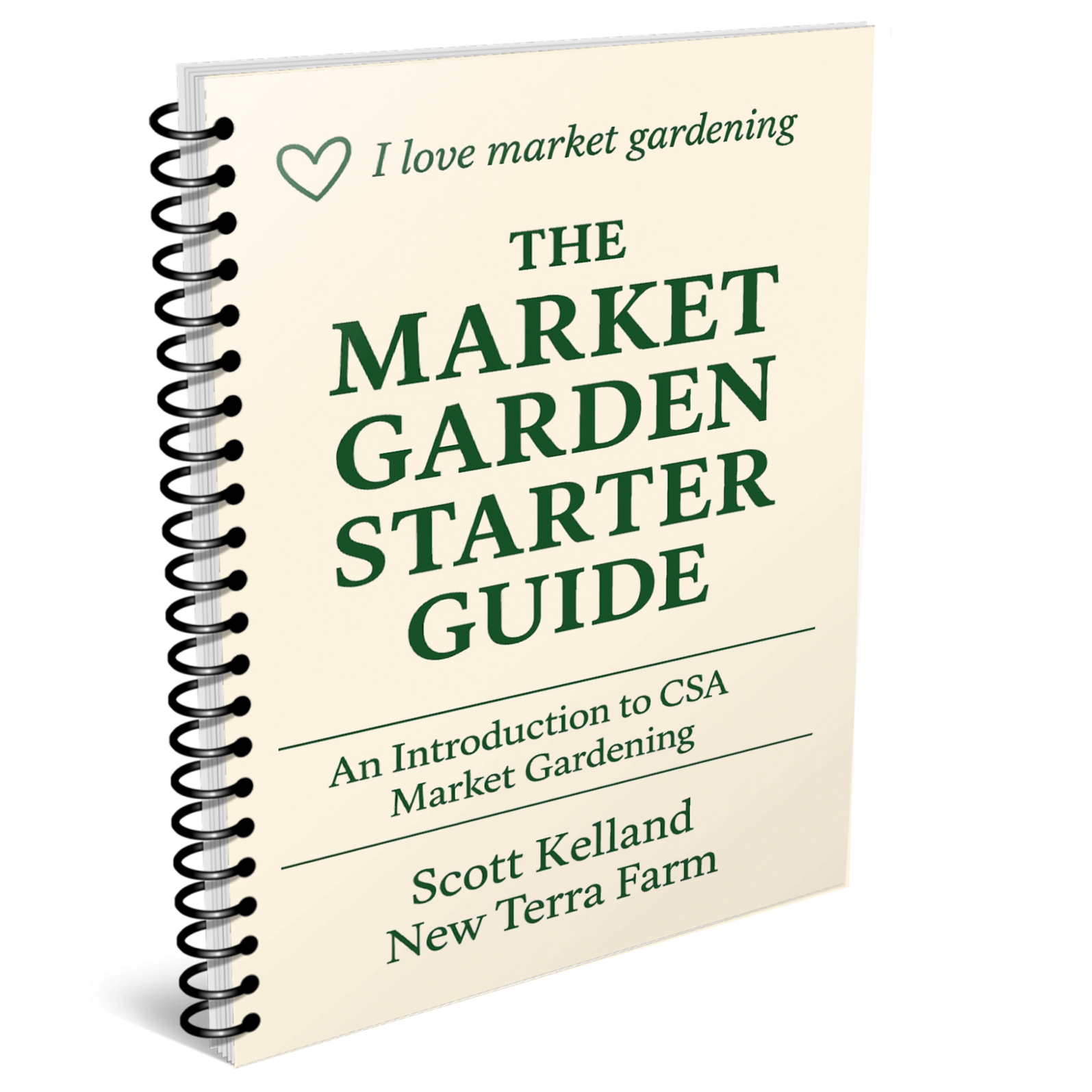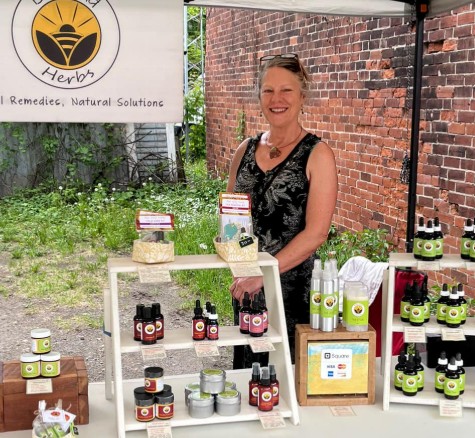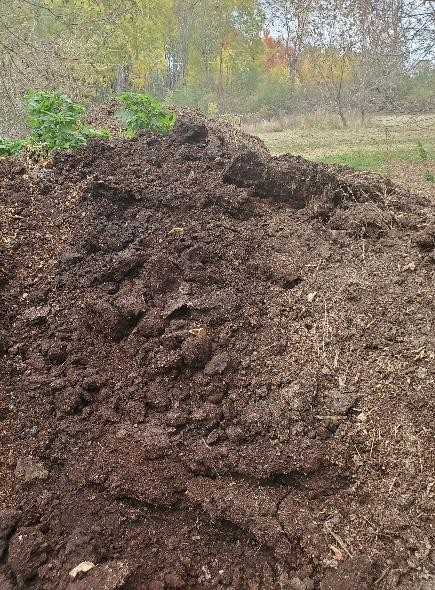1 Acre Farm Ideas: Profitable Micro-Niche Farming That Works Good things can grow with the right 1 acre farm idea Good things can grow with the right 1 acre farm ideaThe topic of starting a small farm is very popular these days. But most of the “1 acre farm ideas” floating around online are either unrealistic, outdated, or so vague they could apply to anyone, anywhere. What’s missing is a strategy - a practical way to turn one acre of land into a reliable income stream that fits your time, tools, and temperament. You can make more money by planting more, or you can make more profit by planting smarter. And the fastest way to do that is by drilling down into a micro-niche i.e. a very specific product or experience that solves a problem for a very specific customer. Micro-niches are the secret behind many of the most successful one-acre farms. These growers don’t try to compete with conventional farms. Instead, they carve out a sliver of the market often overlooked by big farms, but big enough to make a comfortable living. Let’s dig into how that works, and what it could look like on your 1 acre. Why micro-niche focus beats diversified chaosMicro-niching flips the ‘grow everything for everybody’ model typical of a small farm business. When you specialize, you simplify. You build repeatable systems, reduce waste, and create an identity people remember. You become “the micro-green farm,” or “the herb-salt people,” or “the local edible-flower supplier chefs rave about.” The right customers will love that clarity. And you’ll love how much smoother the work becomes when every bed, tool, and task is directed toward one clear purpose. The secret behind successful one-acre farming is that you don’t need to scale up' you need to focus in. Free Guide The consumer demand for fresh local organic food has never been higher. And CSA farms have the highest average net income of all farming models Get my free Organic Market Gardener Start-up Guide and see if this is the right time to launch your CSA market garden business. Enter your best email and the Guide will be sent to you right away. How to find
your profitable micro-niche
Start by answering three simple questions: 1. What are people already looking for? 2. Who would pay more for better? 3. Can you explain it in one compelling sentence? That clarity will guide everything else; your crop selection, your marketing, your pricing, even your daily workflow. Real-world
1 acre farm ideas that actually work
Let’s get down and dirty. Here are some of the most interesting and profitable 1 acre farm ideas I’ve found over the years; each one is proof that focus beats acreage.
 My friend Tanya from Bee Wild Herbs My friend Tanya from Bee Wild Herbs
That's not the end of the list of possibilities. More 1 acre farm ideasHere's a large handful of possible 1 acre farm micro-niches: 1. Pick-Your-Own Gardens. Sell the experience, not just the food. Families pay $20–$50 for access to small harvest zones. Add picnic setups or workshops for bonus revenue. 2. Herbal Pet Treats. Homemade dog treats with home-grown herbs like parsley, mint, and rosemary. The “pet wellness” niche is booming and under-served locally. 3. Mini Medicinal Garden Kits. Five-plant kits (calendula, echinacea, yarrow, chamomile, lemon balm) for home herbalists. Position as “Grow your own apothecary.”. 4. Microgreen Mixes for Smoothies. Blendable microgreens like sunflower, pea, beet, and radish—pre-packaged for smoothie lovers. Combine health trend + convenience = goldmine. 8. CSA 'Snack Boxes'. Instead of bulk shares, create snack-size farm boxes for singles and small households. Perfect for apartment dwellers who can’t handle full CSAs 9. Gourmet Garlic Braids. Old-school charm meets premium food gifting. Grow hardneck garlic, cure, and braid. Farmers markets and Etsy shops love them. 10. Dried Tea Blends. Chamomile, mint, lemon verbena, tulsi (holy basil), rose petals. Local, hand-crafted teas feel artisan—and margins are sky-high. 11. Farm-Crafted Seasoning Mixes. Dehydrate herbs and peppers into spice blends. Market as “Grown + blended on our farm.” Bonus: zero waste from herb overproduction. 12. Native Pollinator Plants. Bundle native species for gardeners and municipalities chasing biodiversity mandates. Sell with educational material for instant authority. A few more 1 acre farm ideas Low cost of entry for small farm weddings Low cost of entry for small farm weddings13. Tiny Farm Weddings. Host small ceremonies on your one acre. Use natural backdrops, sell local flower packages, and offer 'farm-to-table' receptions. 14. Heirloom Seed Packs. Grow, save, and rebrand your seeds. Niche by theme - “Cottage Garden Mix,” “Heritage Tomatoes for Containers.” High margin, easy to ship. 15. Farm School for Kids. Half-day workshops teaching kids to plant and harvest. Parents pay for screen-free education. Add farm snack boxes for extra profit.. 16. Seasonal Decor Crops. Mini pumpkins, gourds, corn stalks, and dried sunflowers for home decorators. Add bundled sets for holidays; low perishability, high markup. 17. High-End Compost Sales. Turn waste into gold. Sell small-batch, biologically active compost to gardeners at premium pricing. Market as “living soil,” not dirt. My brother-in-law sells composted horse bedding from his small property in Quebec.  A big pile of black gold A big pile of black goldPositioning:
where small farms win big
The reason these micro-niches work is simple: they tell a story. Big farms sell commodities. Small farms sell meaning. When you position your product around identity e.g. local, fresh, handcrafted, intentional, you step into a new lane You become the “farm they talk about,” not just another supplier. For instance, imagine offering “chef-grade cocktail herbs grown right here in town.” That phrase alone triggers emotion, curiosity, and pride. People don’t compare it to supermarket mint. They compare it to an experience. In Bootstrap Market Gardening, we show our first CSA flyer that positioned our farm this way: “New Terra Farm is a small family-owned enterprise located near Merrickville, Ontario. We raise a variety of meats and vegetables following natural, sustainable agricultural practices. We believe this results in good food that's also good for you.” So we are selling (besides vegetables) that old-fashioned sensibility, and the feeling of connecting back to the land, and the real source of food. We are selling trust-worthiness, and food safety, and promoting good health. We are selling the convenience of having healthier eating made easy, delivered direct to your door. We are selling the idea of eating and living responsibly, by buying local food and supporting local business The result? People felt good about buying from us, and price was never an issue (see more about that below). That’s why positioning is everything. It’s not just what you grow, it’s how you frame it. Pricing:
charge what your story is worth
Successful small farms don't compete on price. They compete on value and perception. A micro-niche farm should price on transformation, not yield. If your product makes someone’s life easier, prettier, or more connected to their values, it’s worth more than the raw ingredients inside it. Let’s say your cost to grow and package a jar of herbal finishing salt is $4. You could sell it as 'Herbal Salt' for a normal markup of 60% or so. Or brand it as “Chef’s Garden Finishing Salt Limited Harvest Edition” and sell it for $20. Tell a better story, get a better price. The key is to anchor your price to the emotional benefit, not the physical weight. Remember the feelings generated by my CSA promotion. Buying is an emotional decision. Test your 1 acre farm idea before
you plant
When I ran big projects for a living, there was a valuable practice that saved us much grief. That practice is the 'pilot test'. So before you bet the farm on your idea, before you spend months growing something, you mock up a pilot test. Make a simple photo of your imagined product using stock images or your own harvest. Post it on your farm’s Facebook or Instagram page with a real price tag. Ask for pre-orders. If people comment, share, or DM you within hours, you’re onto something. If it’s crickets, tweak the wording and test again. This kind of demand validation saves months of wasted work and often sparks ideas you never considered. Your best farm product ideas might be born in the comments section before a single seed is planted. Your next moveIf you’re serious about turning 1 acre farm ideas into a real business, start this week. Pick three niches that excite you. Test one of them. Gather feedback, adjust, and relaunch stronger. Every profitable farm you’ve ever admired started with one good idea and a willingness to test it before it was perfect. Remember: micro-niches aren’t small; they’re focused. They cut through noise, attract loyalty, and let you build a profitable life on a small footprint. You don’t need 100 acres to make a living. You need one acre and a niche that fits like a glove. That’s the hidden power of micro-niches, and the real opportunity behind every smart “1 acre farm idea.” Resources for '1 Acre Farm Ideas'Chapter 9 - 7 Cash Cow Crops: The Self-Sufficient Backyard Raise chickens, pigs and a productive organic garden: The Homesteader Book Bundle Fresh egg for breakfast (and maybe barter): The Eggs Factory
|
See something you like? Share!
Recent Articles
-
1 Acre Farm Ideas: Profitable Micro-Niche Farming That Works
Feb 18, 26 08:56 AM
Discover proven 1 acre farm ideas that actually make money. Learn how to find micro-niches, set prices, and build a profitable small farm business fast. -
New Terra Farm market gardening book shows you success step-by-step
Feb 17, 26 05:10 AM
Start-up, market and manage a successful organic market garden with my Bootstrap Market Gardening Book -
Farm training for the new or wannabe farmer
Jan 02, 26 10:38 AM
Practical farm training from award-winning New Terra Farm



